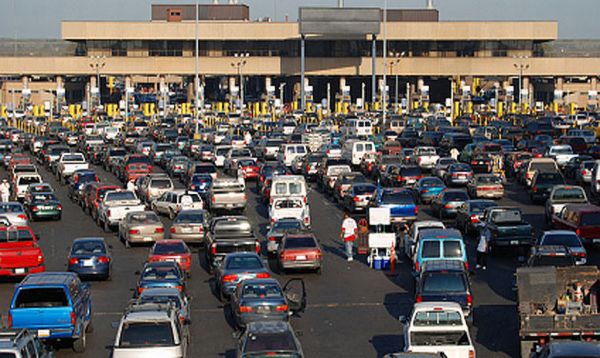El Paso, Texas – In an effort to improve the region’s economy, authorities in El Paso have launched a binational plan to reduce wait times for people entering the US from Mexico at border crossing points.
An agreement was reached with US Customs and Border Protection (CBP) on a plan to use GPS technology to measure the wait times experienced by people at the international border crossing points according to El Paso Mayor John Cook.
 |
Cook reported that CBP's current method for measuring wait times is non-scientific and out-dated and therefor needs to be changed. The agency has agreed to install GPS technology and a task force will use the resulting collected data to determine the true border-crossing wait times.
The group will use the data to come up with objective designing strategies and recommendations to facilitate expedited border wait times. The suggestions will be presented to federal authorities, and later the group will do a follow-up to ensure that the measures are adopted.
Cook said that binational group, which includes the Juarez mayor’s office, Mexico’s customs service, and the Association of Maquiladoras (cross-border assembly plants,) was formed in response to the results of a study that showed that when people have to wait two hours or longer to enter the US, the crossing points are not functioning properly.
Authorities report that on an average day, the wait time for entering the US from neighboring Ciudad Juarez, Mexico, is up to two hours. Congestion at the international crossing point has discouraged Mexicans from shopping in El Paso and has cost about $7 billion in revenue and thousands of lost jobs.
A study by the US Commerce Department shows that El Paso will lose an additional $300 million in tax revenue, 11,500 jobs, $600 million in salaries, and $2.6 billion in exports over the next five years if it does nothing to resolve the border problem.
The Transportation Department has determined that border crossing points will reach maximum capacity within the next several years, after which, unless measures are taken to remedy the situation, they will no longer be able to handle the anticipated traffic.
Currently state and city authorities are trying to get the federal government to authorize funds for the hiring of 250 additional CBP inspectors to make possible the opening of a greater number of customs review stations at the border crossing points.
Source: EFE


